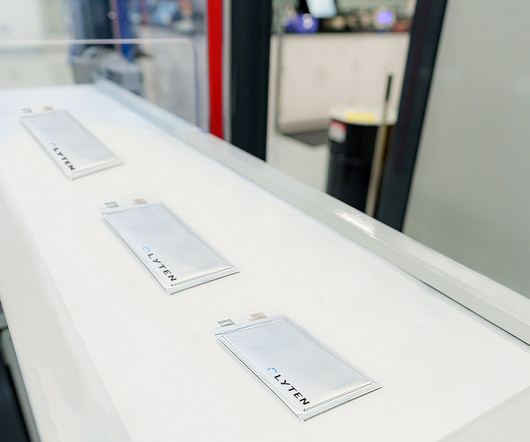Stellantis is about to test the first-ever production-line lithium-sulfur batteries
Baua Electric
MAY 10, 2024
Photo: Lyten In a milestone, supermaterials trailblazer Lyten has shipped lithium-sulfur (Li-S) batteries to Stellantis and other US and EU OEMs for testing. Ah Li-S pouch cells is the first major step in the commercial evaluation of lithium-sulfur batteries by leading US and European automakers. Get started here. –












Let's personalize your content